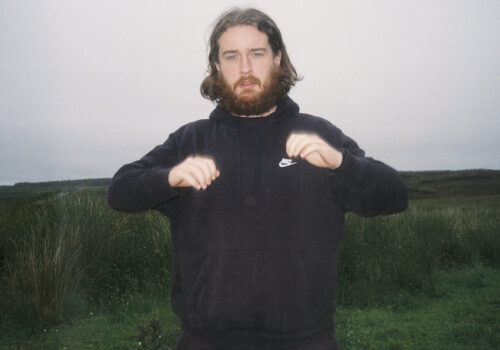Ireland’s mental health services won’t be able to cope for much longer
Words: Eva O’Beirne
Ireland has never been great at handling the issue of mental health. Once I told my dear mammy that I was feeling sad and she instantly replied with “Ah but you’re not depressed though.”
And that’s where the problem begins.
The HSE Performance Report for January-March 2021 shows that more than 10,800 people are waiting to see a psychologist – with more than half waiting for over a year. Ireland also has the third highest rate of mental health illness in Europe.
We have a population that isn’t equipped to talk about how they’re feeling, but they also face the problem of not having enough primary care facilities to go to when they first feel low. Most people’s first point of contact is either a helpline or their GP, both of which are not long-term solutions.
Investment in primary care psychology and making it accessible is key to the HSE. But slow recruitment processes and funding that appears to go no where has lead the Irish population to seek help from everywhere but the public health service.
Arguably, the HSE has never been able to support the population when it comes to mental health issues. The constant relying on charities and helplines has lead to an overdependence on those who are passionate about the topic to become leaders of what to do amongst a growing health crisis.
But unfortunately, not all of these people are good. As with the health service, there is often a horrific monetary imbalance between CEOs and those working on the front lines. Where do we start to tackle the problem of facilitating adequate healthcare? Let’s take a look at the cracks in the system first.
Breaking point
LGBTQ+ services in Ireland have always been at a critical point. According to the lead clinician of Ireland’s only gender clinic, they do “not have capacity” to see the 300 trans people who are being referred to it each year. Without sufficient staff, trans people are left in limbo, unable to seek specialised counselling and instead need to find their own LGBTQ+ friendly therapists.
As well as failing to provide healthcare, the national gender service, based in St Columcille’s Hospital, Dublin only launched a website to advertise its services, and provide information about care pathways and waiting times, in 2021.
Trans youth in Ireland currently have no public healthcare options available to them and must go abroad for healthcare. What is most concerning in Ireland, is that the HSE still links being transgender with mental illness. Whether this is the stance of the national health service or not, the HSE is not equipped to help trans people in Ireland.
Dedicated and guaranteed LGBTQ+ friendly services in Ireland take the unfortunate form of helplines and charities, which further underlines the idea that the HSE chooses not to restructure itself. Conversion therapy is still legal in Ireland, with activist groups like the Anti-Conversion Therapy Coalition alleging that the practice occurs in St Columcille’s Hospital.
Forgotten about
In 2020, there was a 61 per cent increase in hospitals in admissions for children and teenagers with eating disorders. Adult admissions rose by 32 per cent.
In 2020, the entire amount of the for eating disorder services was used to cover other areas of mental health services. Also in 2020, Operation Transformation received over a quarter of a million euro in funding from the Irish Government.
The simple disregard for those with eating disorders is horrific. And we may never know the extent of how eating disorders affect Irish society
A system not for victims
The CEO of the Dublin Rape Crisis Centre, Noeline Blackwell, has called for a reconsideration around the use of sexual assault victim’s therapy notes in legal trials.
Sexual assault victim, Sarah Grace, has also tried to raise awareness about this issue. On RTÉ Radio One, she explained that she wasn’t aware that these accounts could be used to discredit her.
It is only in the areas of sexual violence that therapist’s notes can be used in court as evidence. Originally brought in to protect children, the practice effectively encourages victims to not process their emotions and to avoid counselling.
When help is a hindrance
Unfortunately, mental health issues do not end by just providing services. It is what goes on behind closed doors that should be a major concern for the Irish population. I feel like we’ve had a blind trust in our mental health services up until this year. Two major services, the HSE’s CAHMS and Pieta House, have been repeatedly called out for suspicious behaviour or inadequate treatment by those who have been patients.
More than 11,700 children and teenagers accessed child and adolescent mental health services (CAHMS) last year by the end of November, which was 20 per cent above the demand the HSE was expecting for the year.
Over 3000 were still waiting to access these services by the end of the near, which is the highest number since 2015. The HSE could not give an approximate waiting time for nearly half of these patients. 221 have been waiting more than a year to be seen.
To say I know Irish mental health services would be an understatement. I feel like I’ve been in a toxic friendship with most institutions since I was in my teens, but don’t want to let go out of fear I will never be able to see them again. I’ll keep it brief, CAHMS did not help me. It prevented me from doing severe damage to me, that is true, but it temporarily destroyed my relationship with my parents and reinforced Magdalene ideology that I needed to be “watched” in case I “got into trouble”. Mind you, I was underage and both my therapists were male.
A lot of my trauma with Ireland’s mental health services has only been realised as I’ve moved into my twenties. I realise that many of the adults in the system are not equipped to deal with teenage emotions. Just like my parents at the time, they simply don’t get it. My parents definitely thought they were doing the right thing, but CAHMS has left me with irreparable damage that I think I’m going to carry with me for the rest of my life.
I can’t sit here and claim that CAHMS doesn’t try to help, but I have heard the stories of fellow ex-patients. It is not a suitable system and needs a desperate amount of modernisation.
Now when it comes to Pieta House, I can’t in all honesty sit here and criticise the concept of thousands of Irish people raising money and awareness for mental health each year. But I will criticise the financial dealings of the charity being incredibly dodgy, as revealed by a HSE audit in 2018. The HSE found controls and oversight at the charity, which received €5 million in HSE funding over the past two years, were “unsatisfactory”, and made more than 50 recommendations for improvement.
Board minutes did not record any discussion or approval of salary increases awarded to the then CEO and other senior staff in 2017 and the HSE could not access the contract of employment for the founder and former CEO Joan Freeman. There was also no evidence of the board decision to have the credit limit on credit cards increased from €5,000 to €15,000.
An anonymous Reddit post made in 2020 alleged that despite usually having around five million euro in petty cash and the CEO being on a salary of 120 thousand, the full time salary for a psychotherapist in Pieta House is 24 thousand per annum. The post was made in response to the treatment of Pieta House staff at the start of the pandemic.
I don’t have faith in these institutions anymore. I know what its like to be at breaking point and desperate for help. And to learn that Pieta House doesn’t treat “moderate to severe” mental health issues just makes me wonder what safety nets are out there.
Are we that surprised by the increase in referrals to CAHMS if one of the most popular mental health helplines doesn’t actually help those who are suicidal?
Initiatives that could save the mental health service
The situation is not all doom and gloom. There are some great initiatives out there that are attempting to expand the mental health services available in Ireland. Black Therapists Ireland is one of these initiatives.
BTI was founded by therapist Ejiro Ogbevoen after a young woman contacted her and described how difficult it was to find a black therapist in Ireland.
The directory is currently made up of 15 practitioners with various areas of expertise, including in relationships, grief, trauma, addiction, male domestic violence, anxiety, depression, stress and much more. Other issues include managing discrimination in the patient’s environment be it work or school.
The goal of BTI is to remove barriers to seeking therapy while offering the option of working with black therapists living in Ireland.
So what next?
If you need help, if you are struggling in any way, please reach out to some of the services below. It may not be a long term solution but talking to someone will help you put things in perspective. Its the first step to helping yourself.
The National Doctors Training and Planning unit of the HSE has in a recent publication highlighted the fact that hundreds more consultant posts are needed in psychiatry by 2030 for the HSE to run a safe and effective service. Currently one in five consultant psychiatrist posts are vacant.
The Irish Government is very much choosing not to address this problem, and when they do it is for a PR opportunity. The system is in need of radical reform, plain and simple.
I wish I could conclude on a more hopeful note, but I suppose the hopeful note is to point out the amazing work done by student unions, college mental health services, helpline volunteers and GPs who have become the first point of contact for those struggling.
Elsewhere on District: Who actually benefits from Minimum Unit Pricing?





